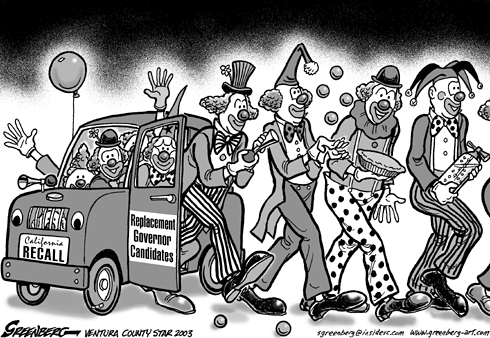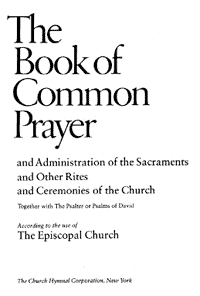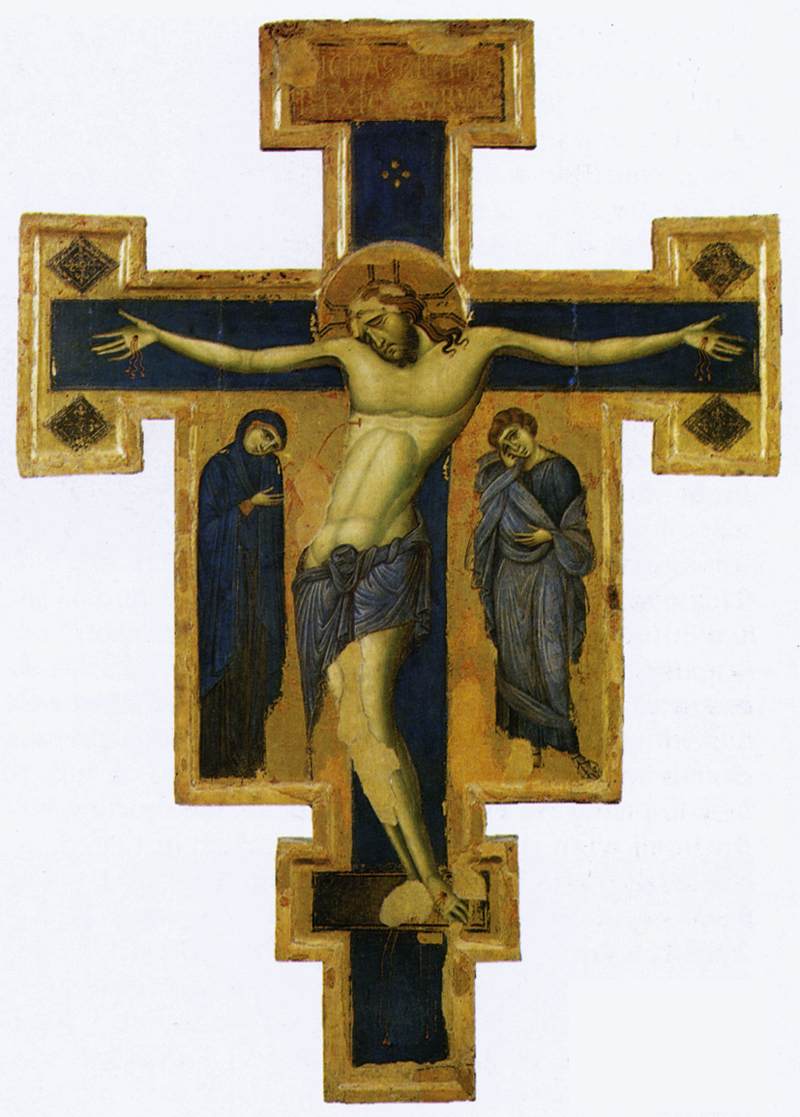In the Name of the Father and of the
Son and of the Holy Spirit.
Amen.
I have to admit that this morning’s
Gospel makes me uncomfortable. Let’s face it: we’re Anglicans and as Anglicans
we have a great tendency to see Jesus in a very positive light. I was raised
with the images of Jesus in a field with children and sheep, or Jesus standing
in solidarity with the poor and the marginalized: a kind and loving Jesus who
taught us to love our enemies and pray for those who persecute us.
But the Jesus in this morning’s
Gospel is none of those things.
He’s royally ticked! He’s angry and
violent; a Jesus I don’t like to think about – a Jesus for whom the word “livid”
is woefully inadequate – a Jesus in a rage that is neither forgiving nor
compassionate.
Now, while I have some great
discomfort with this portrayal of Our Lord, I have to admit that he had a
point. The system within the Temple precincts was about as corrupt as one could
get. The whole sacrificial system had been turned into a money-making scheme by
the Priests, the Scribes and the Sadducees at the expense of the regular,
ordinary go-to-Synagogue Jewish peasant.
But the sacrifices were deemed
necessary to please God for a whole host of personal and public needs. In the
olden days, one could bring ones animal to the Temple to be sacrificed. In
those days, going to the Temple for a sacrifice was somewhat like going to the
butcher shop and having a picnic. People took the animal with them to the
Temple. Then the animal was slaughtered and, depending on the reason for the
sacrifice, part of it was burned, the best part given to the Priest as payment and
the rest roasted and returned to the one offering the Sacrifice who then
prepared a large feast for the family and everyone enjoyed the leftovers. For
lesser sacrifices, smaller animals were offered without the resulting picnic.
But as time went on, things got a bit
more sinister. Rules and regulations about the quality of the animal began to
be written. They had to be spotless and without blemish, or of a certain age. And
for the ordinary Jewish peasant, especially for those living within cities, raising
an animal for sacrifice wasn’t easy. One had to purchase an animal at the
Temple to be subsequently dispatched.
Now, one couldn’t just walk into the
Temple Court of the Gentiles and purchase an animal and then trot off to the
Altar. First, one had to have the proper cash. The Temple authorities had
devised a system through which only Temple currency was acceptable for the
purchase of a sacrificial animal. Even the Jewish Shekel wasn’t acceptable. It
was impure. So, one went to the money-changer within the Court of the Gentiles and
exchanged one’s Shekels for Temple Money.
Now, of course, the money changers
did their work for a fee but the fees were high. Not only did they have to make
a living at this profession, they had to pay the Temple authorities for the
privilege of their profession which meant that the exchange rate was exorbitant.
And since the exchange rate was so high, most common ordinary Jewish peasants really
couldn’t afford to offer sacrifices. And of course, the Temple Priests were
pretty strict about the idea that if one couldn’t offer sacrifices, don’t count
on God’s favor. Of course, this left the local peasantry feeling as if they
were worth virtually nothing in God’s eyes.
And, so this is the Temple into which
Jesus walks in the last week of his life. And he’s hunting for bear. He’s had enough. And with uncharacteristic violence
and rage and a whole bunch of Aramaic four letter words, he wreaks mayhem and destruction
within the Temple. And he makes his point: this Temple is to be a house of
prayer, not the local Walmart.
Now, while I personally find this episode uncomfortable, I also find it profound. Nowhere else in the New Testament do we find Jesus reacting in such a visceral and disturbing manner. While the Priests and Scribes and the Pharisees and the Sadducees seemed to have their knickers in a twist about ritual purity, Jesus doesn’t seem to be concerned about it much if at all.
Now, while I personally find this episode uncomfortable, I also find it profound. Nowhere else in the New Testament do we find Jesus reacting in such a visceral and disturbing manner. While the Priests and Scribes and the Pharisees and the Sadducees seemed to have their knickers in a twist about ritual purity, Jesus doesn’t seem to be concerned about it much if at all.
 The woman caught in adultery and
thrown at Jesus feet: he responds to her by saying, “Don’t do that. It’s
degrading. You’re worth more than that.” He calls a tax-collector to be a
member of his inner circle. The woman who bankrolls Jesus Inc. was once the possessed
by seven demons. He has lunch with ladies of the evening and other such rabble –
and in those days, to share a meal with someone was a sign of friendship. None
of these people raise in Our Lord the ire, the sheer rage that is expressed in
the Temple. As a matter of fact, there is no anger at all. Love? Compassion? Forgiveness?
Yes. But no anger, no rage, no violence, no destruction.
The woman caught in adultery and
thrown at Jesus feet: he responds to her by saying, “Don’t do that. It’s
degrading. You’re worth more than that.” He calls a tax-collector to be a
member of his inner circle. The woman who bankrolls Jesus Inc. was once the possessed
by seven demons. He has lunch with ladies of the evening and other such rabble –
and in those days, to share a meal with someone was a sign of friendship. None
of these people raise in Our Lord the ire, the sheer rage that is expressed in
the Temple. As a matter of fact, there is no anger at all. Love? Compassion? Forgiveness?
Yes. But no anger, no rage, no violence, no destruction.
The thing that seems to have sent Our
Lord over the edge was those to whom power and authority had been entrusted, who
then turned around and used that power and authority to oppress and degrade and
control those lower on the societal ladder. This was the one thing that just
sent him into orbit. And it scared the living daylights out of the Romans and
the Big Whigs at the Temple. And so they decided to get rid of him, once and
for all.
I look at the nation in which we
live, in which we are citizens and then I look at this morning’s Gospel lesson.
Not much has changed. I look at those coming out of the Clown Car the news
people are calling Decision 2012 and radio talk show hosts and just shake my
head. All of them call themselves devout Christians, but none of them seem to
get it.
It seems impossible to me that in the
21st Century we’re having a national debate on whether women have
the right to ask the insurance companies which they pay to assure that they
will have health care just because a few men find their sensibilities
offended.
I find it incredible that in a city in which people are sleeping under overpasses and bridges and many in the south part of town don’t have enough to eat, or enough money to heat their homes, the local Archbishop is mustering his forces and all the cash he can just to insure that legislation granting same-sex couples the right to marry is overturned.
I find it incredible that in a city in which people are sleeping under overpasses and bridges and many in the south part of town don’t have enough to eat, or enough money to heat their homes, the local Archbishop is mustering his forces and all the cash he can just to insure that legislation granting same-sex couples the right to marry is overturned.
I myself have a visceral reaction every
time I hear some politician refer to the poor and the needy as lazy parasites while
allocating billions for the production of implements of war and assuring that
their buddies don’t need to pay their fair share of taxes.
What has become increasingly obvious is
that if Jesus were physically present in human form rather than in just Bread
and Wine, the episode in the Temple from this morning’s Gospel would look like
a Sunday School picnic.
On one level, it’s easy to point out
the inconsistencies of our own nation and society. It’s also easy, at least for
me, to get my own knickers in a twist about the same things. And being aware of
and responding to such things is what we as Christians are called to do in so
far as we are physically, emotionally and spiritually able. And the Church
gives us such readings in Lent to remind us of what was important to Jesus and
what wasn’t.
But the hard part of Lent, at least
for me, is to ask: in what ways is my own heart
just like the Temple in the time of Jesus? How do I try to control or
manipulate or degrade or oppress other people? Where do I fall short? What are
my motives? And I have to admit that my motives are usually based in fear of
the other and fear of the unknown.
And I also have to ask myself: in
what ways to I try to be pure and upright and righteous not just for the sake
of doing so and as a thanksgiving to God for the gift of life, but rather believing
that such purity and righteousness will make God love me more, or so that
others will think better of me than they might otherwise?
I find it easy to point the finger at
political and public figures and find valid fault with their actions, but it’s
much more difficult to point the finger at myself and realize that, though on
not such a grand scale, I am no different.
But there is also a joy in Lent. A
great joy; a joy based in the promise that when we find ourselves sitting in
our own Temples and changing the money, there is One with us whose love for us
is never in question – who has no desire to come in and throw over our money
tables; there is a joy in the understanding that we are human and will never be
perfect; there is great joy in the knowledge that God’s love for the human race
and for ourselves as individuals isn’t based on what we do, but who we are: the
beloved. And all of that changes everything.
What changes is that I begin to see
those coming out of the Clown Car not as ignorant fools, but as my brothers and
sisters just as worthy of God’s compassion as I am. I begin to see the
Archbishop no longer as a mean-spirited prelate, but as a human being with
fears and foibles just as I have my own fears and foibles and also as my
brother.
I begin to know that those fellahs
trying to drag my sisters back into the Victorian age, while totally clueless, are
no less clueless than I am at times and that God’s love for them has never nor
ever shall be, in doubt.
Lent began by Holy Mother Church
calling us to the observance of a holy Lent, by self examination and
repentance; by prayer, fasting, and self denial; and by reading and meditating
on God’s holy Word. And she does so, in her wisdom, to remind us of our own
humanity, that we are one community – globally, nationally, ethnically,
culturally – and that we will never be perfect or get it right. She does so to
remind us that being human is just fine and that we must rely on God to make up
the difference. But she also, in her wisdom, calls us to lives of forgiveness
and mercy, to lives of compassion and goodwill, not just for ourselves, but for
those whose lives and values and mindsets might be totally different than our
own.
And why does she call us to such
things? To remind us that even though we may be so very different from God, so
incomplete, that we are and always have been God’s beloved; not just you and
me, but all of us; and that we are to reach out to each other as each other’s
beloved in Jesus Christ our Lord.
Amen.
Amen.









The God of my understanding, which I do not understand, occasionally DOES overturn the tables in my "temple." The God of my understanding, which I d eno not understand sometimes makes me quite uncomfortable, because that's what Hours does, particularly from those we deem clueless. Those deemed clueless are often pathetically prophetic.
ReplyDelete